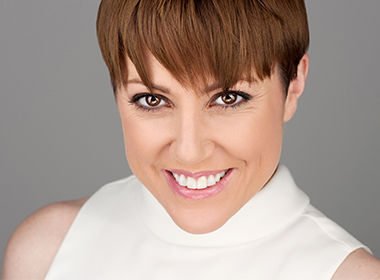Hannah Foxley, Chartered Financial Planner AKA Finance Girl.
Following on from my overview of the various types of protection available, I wanted to give you some food for thought when it comes to protecting your business and the key people within it.
So, to start from the top as it were;
Protecting a limited company’s shareholders:
Have you ever thought about what would happen to the shares in your business if one of the shareholders were to die?
If your business has two or more shareholders, whether they are family or not, it is important to consider what would happen to those shares on the death of a shareholder. In fact, sadly when family is involved it is extremely important to have things in black and white as money really does bring out the worst in people, believe me, I know!
Unless specific provisions have been made, the shares of the deceased shareholder will become part of their estate. This can cause a lot of problems, two of the main ones being;
- The spouse or family of the deceased shareholder decides that they want to sell their shareholding and realise the value. There can be two problems here; the first is that the shares are illiquid as there may not be a market to sell them. Or, if there is a market for the shares, the person that buys into the company may not share the ethos and values of the current shareholders and this can cause huge arguments in the way that the business is run going forward. Can you imagine having someone buy into your company that you can’t stand and you don’t agree with, who then starts to try and call the shots? How would that make you feel?
- The spouse or family of the deceased shareholder may decide that they wish to get involved in the running of the business or they could remarry and the new spouse may wish to do the same. Again, they may have very different views to the current board. Would you want the husband or wife of the deceased shareholder trying to make decisions about the future of your business at an already stressful time, when they haven’t a clue about what you are trying to achieve? Likewise, would you want other members of your family trying to get involved in running your business, particularly if you don’t really like them?!
In both cases, unless you and the other shareholders are able to buy the shares from the deceased’s estate, there can be big problems in the future running of the company.
It is very simple to ensure that this is not a problem. Life policies can be put in place in favour of the surviving shareholders to enable them to buy the deceased’s shareholding. Likewise, the same can be done in the event of a critical illness forcing a shareholder to sell their shares. It is important to also ensure that the correct shareholder agreement is also in place. This is again quite straightforward but you will need advice as the wrong agreement can result in an inheritance tax liability.
Protecting a Partnership:
If your business is a partnership, the legalities are slightly different, but the principle is the same. Partnership protection will afford the same protection to the remaining partners of the firm.
It is again important to ensure that the correct and formal partnership agreement is in place, as without this, a partnership will dissolve on the death or retirement of a partner. The Act governing partnerships without a formal agreement in place dates back to 1890 and is unlikely to be suitable for modern partnerships. It is important to get advice.
Protecting your Key People
- Who are the key people in your business?
- What makes them key to your business?
- Could you easily replace them if they became ill or died?
- What would be the impact on your business if they were no longer there?
- What would be the cost of hiring or training someone to replace them?
- What would be the loss of revenue while this was happening?
- Do you have any protection in place in case this happens?
It is important to consider the key people in your business and the impact of the business if they were not around. It may be that the only key person in your business is you, but what would happen to the business if you had to take a year out to recover from cancer or another illness? Would you want your business to fold or would you want it to be able to continue? What would happen to your staff if you weren’t there to run the business? If the answer to the last question was no, you need key person insurance.
Again, this is as simple as a life and critical illness policy, which would pay a lump sum to the business in the event of the death or critical illness of a key person. This money could be used to recruit someone new, or to prop up the cash flow of the business until such time as others were up-skilled to do the job or you or other key people could return to work.
In the case of the all the above protection, you will need advice to help you calculate how much you will need as well as ensuring that you have all of the correct agreements and trusts in place. Getting this wrong can result in HMRC tax charges or proceeds of policies falling into the wrong hands, so advice from an adviser who understands this type of financial planning is essential. Please contact me if you require advice.
In the next blog I will move onto protecting yourselves and your employees through the business.
Please contact me for further advice on 07595 747969 or email me on [email protected]








